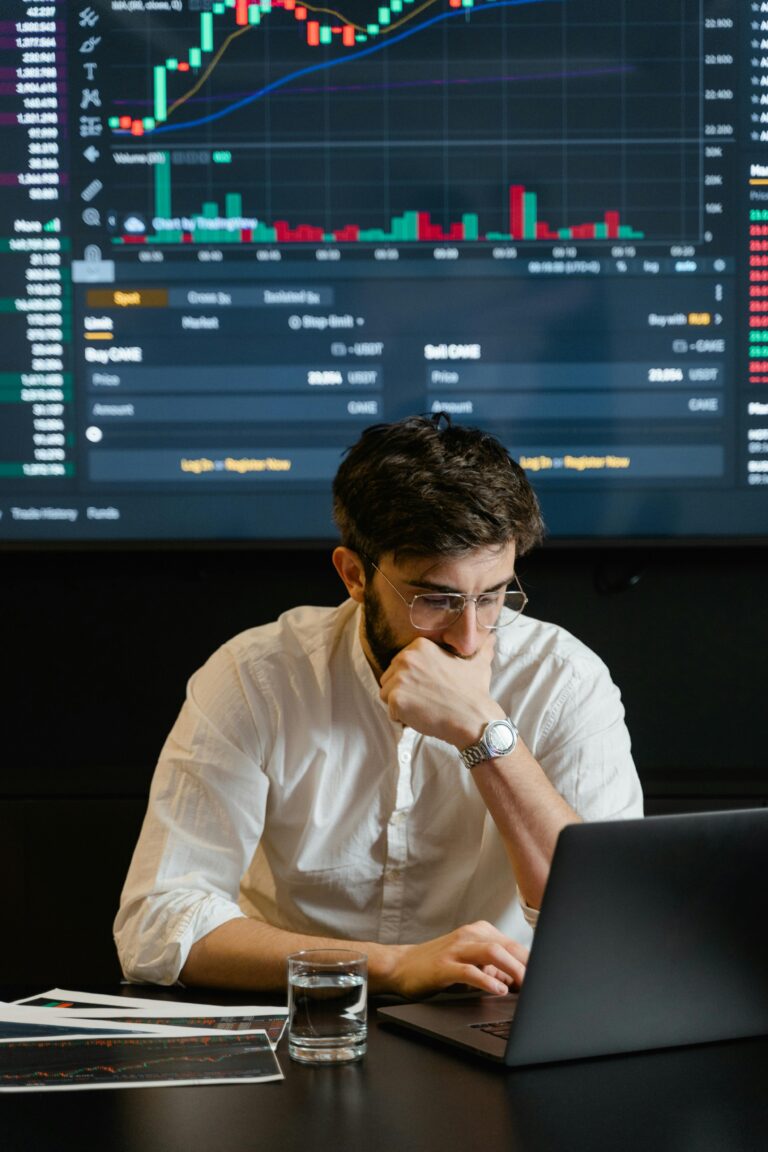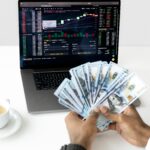Here’s a comprehensive article on the most common risks associated with forex trading:
The Most Common Risks Associated with Forex Trading
Forex trading, while potentially lucrative, comes with significant risks that traders must understand and manage. Here are the most common risks associated with forex trading:
1. Leverage Risk
Leverage is a double-edged sword in forex trading. While it can amplify profits, it can also magnify losses.
– Traders can access high leverage ratios, sometimes up to 500:1
– Small market movements can lead to substantial losses
– Overleveraging can quickly deplete trading capital
To mitigate leverage risk:
– Use leverage cautiously and understand its implications
– Start with lower leverage ratios until you gain experience
– Always use stop-loss orders to limit potential losses
2. Market Volatility Risk
The forex market is known for its high volatility, which can lead to rapid and unpredictable price movements.
– Currency pairs can experience sudden spikes or drops due to economic news or geopolitical events
– High volatility can trigger stop-losses or margin calls unexpectedly
To manage volatility risk:
– Stay informed about economic calendars and potential market-moving events
– Use appropriate position sizing to withstand short-term market fluctuations
– Consider using volatility indicators to gauge market conditions
3. Interest Rate Risk
Changes in a country’s interest rates can significantly impact currency values.
– Higher interest rates typically strengthen a currency, while lower rates weaken it
– Unexpected interest rate decisions can cause rapid currency fluctuations
To address interest rate risk:
– Monitor central bank announcements and economic indicators
– Understand the relationship between interest rates and currency pairs
– Be prepared for increased volatility around interest rate decisions
4. Liquidity Risk
While the forex market is generally highly liquid, certain conditions can lead to reduced liquidity.
– During off-peak hours or in exotic currency pairs, liquidity may decrease
– Low liquidity can result in wider spreads and slippage
To mitigate liquidity risk:
– Focus on major currency pairs during peak trading hours
– Be cautious when trading exotic pairs or during market holidays
– Use limit orders to ensure execution at desired prices
5. Counterparty Risk
This risk arises from the possibility that the counterparty in a forex transaction may default.
– Primarily a concern when trading with unregulated brokers
– Can result in the loss of deposited funds or inability to withdraw profits
To reduce counterparty risk:
– Choose regulated brokers with good reputations
– Diversify across multiple brokers if trading large amounts
– Understand the regulatory environment and protection measures in place
6. Technology Risk
Forex trading relies heavily on technology, which can sometimes fail.
– Internet outages, platform crashes, or computer malfunctions can disrupt trading
– Technical glitches may lead to unintended trades or inability to close positions
To manage technology risk:
– Have backup internet connections and devices
– Use mobile trading apps as a backup to desktop platforms
– Regularly update and maintain your trading equipment
7. Emotional and Psychological Risk
The psychological aspects of trading can significantly impact decision-making and risk management.
– Fear and greed can lead to irrational trading decisions
– Overconfidence after wins or desperation after losses can result in poor risk management
To address psychological risks:
– Develop and stick to a well-defined trading plan
– Practice emotional discipline and avoid impulsive trades
– Take regular breaks to maintain a clear perspective
8. Regulatory Risk
Changes in forex regulations can impact trading conditions and profitability.
– Regulatory changes may affect leverage limits, reporting requirements, or tax implications
– Some countries have restrictions on forex trading for retail investors
To mitigate regulatory risk:
– Stay informed about regulatory changes in your jurisdiction
– Choose brokers that comply with local regulations
– Understand the legal implications of forex trading in your country
9. Economic and Political Risk
Global economic and political events can cause significant currency fluctuations.
– Elections, trade disputes, or economic crises can lead to volatile currency movements
– Long-term economic trends can affect currency values over time
To manage economic and political risk:
– Stay informed about global economic and political news
– Understand how different events might impact currency pairs
– Consider using fundamental analysis alongside technical analysis
10. Execution Risk
This risk relates to the possibility that trades may not be executed at the expected price.
– Slippage can occur during high volatility or low liquidity periods
– Requotes or delays in execution can affect trading strategies
To reduce execution risk:
– Use limit orders instead of market orders when possible
– Be cautious during major news releases or market-moving events
– Choose brokers known for reliable and fast execution
In conclusion, while forex trading offers significant opportunities, it’s crucial to understand and actively manage these risks. Successful forex traders develop strategies to mitigate these risks, use proper risk management techniques, and continuously educate themselves about market dynamics. Remember, no trading strategy can eliminate risk entirely, and it’s essential to only trade with capital you can afford to lose.
Citations:
[1] https://www.investopedia.com/articles/investing/111214/top-5-forex-risks-traders-should-consider.asp
[2] https://www.forex.com/en-us/trading-academy/courses/successful-trading-techniques/common-forex-trading-mistakes/
[3] https://www.cftc.gov/LearnAndProtect/AdvisoriesAndArticles/reduce_risk_of_forex_fraud.htm
[4] https://moneysmart.gov.au/investment-warnings/forex-trading
[5] https://www.cityindex.com/en-uk/forex-trading/risks-of-forex-trading/
[6] https://www.tradingacademy.com/financial-education-center/forex-risks.aspx
[7] https://www.cftc.gov/LearnAndProtect/AdvisoriesAndArticles/CustomerAdvisory_MustKnowForex.html
[8] https://tipalti.com/currency-management-hub/foreign-exchange-risk/




Keep up the fantastic work! Kalorifer Sobası odun, kömür, pelet gibi yakıtlarla çalışan ve ısıtma işlevi gören bir soba türüdür. Kalorifer Sobası içindeki yakıtın yanmasıyla oluşan ısıyı doğrudan çevresine yayar ve aynı zamanda suyun ısınmasını sağlar.